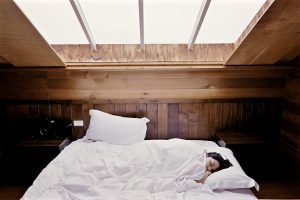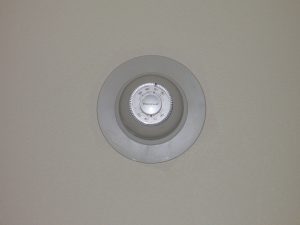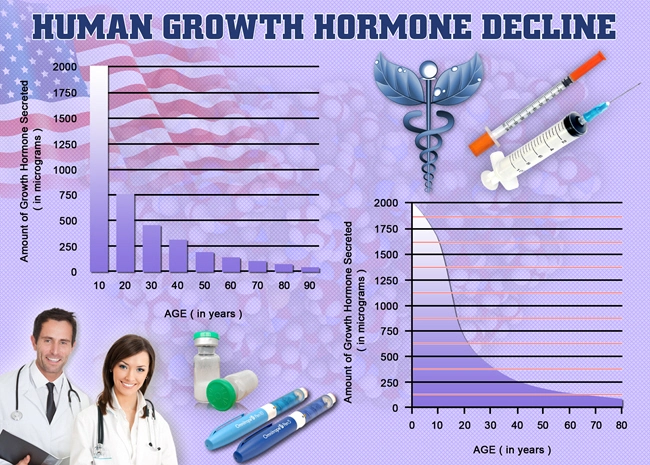
 Getting deep, restful, quality sleep is often overlooked as a way to improve your health and quality of life. But experts say it is every bit as important as a healthy diet and an exercise program. Every bit!
Getting deep, restful, quality sleep is often overlooked as a way to improve your health and quality of life. But experts say it is every bit as important as a healthy diet and an exercise program. Every bit!
If your sleep is of low quality -- you're constantly waking up -- or if you consistently get less than 6.5 hours of sleep a day, you risk having poor health, a lower quality of life, and even significantly reduced lifespan. It's not worth it! Take control of your sleep and its length and quality with these helpful tips.
Bad sleep or too little sleep can even have bad effects -- and immediate bad effects -- on your hormones, on your cognitive abilities, and on your athletic performance or ability to exercise effectively.
It's also known to make you gain weight. Even worse, it increases your risk for diseases and hampers your ability to heal and fight off illness.
High-Quality Sleep is like a Free, Miracle Drug
But high-quality, regular sleep in ample quantities can not only make you healthier but it can reduce your appetite and make it easier to lose those pounds and get to a healthy weight. In addition, quality sleep can help to balance hormones and even naturally increase human growth hormone!
It's almost like a miracle drug that helps you in so many ways -- but it's not a drug, has zero bad side effects, and it's perfectly healthy and natural.
We evolved to need sleep -- and plenty of it. After the exertions of the day, the body needs to recover. Your sleeping hours are a time for your body to replenish its resources, carry away toxins and wastes, heal injuries (even ones you can't see and don't know you have), rebuild stressed tissues and organs, build up your immune system, fight off infections, and, in the case of children, do some growing. Turning off the conscious mind and ceasing all physical activity is necessary for all those things to take place. In short, we evolved to absolutely need sleep and there's no way around it.
How to Get Better Sleep – NOW!
 Here are some tips to help you get that sleep you need.
Here are some tips to help you get that sleep you need.
• This first tip varies from person to person: For people over 50 who often can't get more than five hours of sleep at night, take a map during the day if your body demands it, but try to keep it under two hours. Younger folks should have shorter naps than that -- if they need them -- or none at all. Your goal should be a minimum of 6.5 hours of good sleep a day; eight hours is even better.
• Do your best to sleep and awaken at the same times every day. This helps align your body's internal clock to the rising and setting of the sun and the 24-hour diurnal cycle. Many who practice this report better sleep and no need for an alarm clock at all!
• For severe cases of sleeplessness, take a melatonin supplement. It's a natural sleep hormone. Some people's bodies produce less melatonin as they age, and a little dose can really, really help them sleep. It's very effective if you need it! But don't exceed the recommended dose, as it might interfere with your body's natural production.
• Don’t eat anything late in the evening, especially not a meal or large snack. This gets your digestion going and stops the natural release of melatonin and HGH in your body, either one of which can disrupt your sleep patterns.
• Do, however, eat a high-carbohydrate meal about four hours before bedtime. This is the ideal timing to get your body's sleep cycle going just when you want it.
 • Set your thermostat in your bedroom for a temperature a bit lower than you prefer while active during the day. Some recommend 70 degrees, others around 65 F. Experiment and find what seems most comfortable for you -- and be aware that numerous studies have shown that being too warm makes it harder for most people to fall asleep.
• Set your thermostat in your bedroom for a temperature a bit lower than you prefer while active during the day. Some recommend 70 degrees, others around 65 F. Experiment and find what seems most comfortable for you -- and be aware that numerous studies have shown that being too warm makes it harder for most people to fall asleep.
• Consider meditation or other relaxation techniques -- may be just thinking calming thoughts and listening to calming music -- just before bed. Reading a book that you really like is good too. But reading work emails or dealing with a frustrating problem in the hour or two before bedtime is a very bad idea. You don't need those stress hormones spiking when you should be relaxing!
• Take a shower or bath at your favorite, most comfortable temperature, in the hour or two before bed. This has ben proven t increase sleep quality. Some people say they get the same effect by merely dangling their feet in hot water.
• Increase your exposure to bright light during the morning and mid-day hours. This helps set your inner body clock to the "this is active time now" mode and gives you more energy when you need it, which also has the pleasant effect of giving a "winding down," lower-energy, relaxing state in the evening just before sleepy time.
• Avoid alcohol in the evenings. Studies show that even as few as two drinks can mess up your natural hormone production and severely decrease sleep quality.
• Make sure your bedroom is a calming and pleasant refuge. It's especially important to be isolated from potentially jarring noises or changing light levels. Make sure your bed and covers and pillow are clean and comfortable. If you find that you always sleep better in a motel, look carefully at your bedroom environment -- something might need attention.
• Get good, regular exercise every day. This is one of the very best ways to get more and better sleep -- it's more effective than any drug or medical therapy according to several studies. Try not to exercise in the three four hours before bed, though, as this can throw your natural sleep rhythms out of kilter.
 • Don’t drink liquids -- any liquids -- before bedtime. The reason is simple -- it can fill your bladder and make you need to get up to use the bathroom in just a few hours. Drain your bladder right before turning in, and, while staying hydrated is good for you all day long, make an exception and drink no liquids at all in the two hours before bed.
• Don’t drink liquids -- any liquids -- before bedtime. The reason is simple -- it can fill your bladder and make you need to get up to use the bathroom in just a few hours. Drain your bladder right before turning in, and, while staying hydrated is good for you all day long, make an exception and drink no liquids at all in the two hours before bed.
• Rule out a medical disorder -- it's possible you might have sleep apnea, which causes problems breathing at night. This is a serious condition and should be treated immediately. There are other disorders that might apply to you, so ask your doctor if the common-sense approach we're giving you here doesn't seem to have much effect.
So that's it. Sleep is a balm and a wonderful gift of nature. Getting excellent sleep makes for excellent days -- and an excellent life too.
Contact Us Today For A Free Consultation
Dear Patient,
Once you have completing the above contact form, for security purposes and confirmation, please confirm your information by calling us.
Please call now: 1-800-380-5339.
Welcoming You To Our Clinic, Professor Tom Henderson.

- Finally! A Safe, Effective and Easy Way to Slow Aging: Genotropin HGH Product [Last Updated On: February 17th, 2025] [Originally Added On: June 24th, 2020]
- Metformin: The First Effective Anti-Aging Drug? [Last Updated On: February 16th, 2025] [Originally Added On: June 29th, 2020]
- A new study says Human Growth Hormone (HGH) can reverse aging! [Last Updated On: October 13th, 2024] [Originally Added On: June 30th, 2020]
- What Metabolism Reveals About Aging and Mortality [Last Updated On: February 17th, 2025] [Originally Added On: December 1st, 2020]
- Stanford University: A Way to Reverse Age-Related Health Issues is a Real Possibility [Last Updated On: August 15th, 2025] [Originally Added On: February 4th, 2021]
- The Six Biggest Hormone Disruptors to Avoid [Last Updated On: October 8th, 2025] [Originally Added On: May 16th, 2021]
- Laugh It Up! Boost Your HGH FAST [Last Updated On: August 14th, 2025] [Originally Added On: June 7th, 2021]
- Scientists Bold Prediction: We'll Soon Extend Life Well Beyond 120” [Last Updated On: June 1st, 2025] [Originally Added On: August 24th, 2021]
- Can My Hormones Make Me Fat? [Last Updated On: August 13th, 2025] [Originally Added On: September 1st, 2021]
- Testosterone Therapy may protect Telomeres and slow aging [Last Updated On: February 16th, 2025] [Originally Added On: September 14th, 2021]
- Minoxidil: A potential cure for baldness? [Last Updated On: October 7th, 2024] [Originally Added On: November 16th, 2022]
- The Quest for the Secret of Longevity [Last Updated On: September 30th, 2025] [Originally Added On: November 24th, 2022]
- Jeff Bezos Wants to Stop Aging! [Last Updated On: October 3rd, 2025] [Originally Added On: November 24th, 2022]
- Is it possible to live to 180? Perhaps! [Last Updated On: October 19th, 2024] [Originally Added On: November 29th, 2022]








